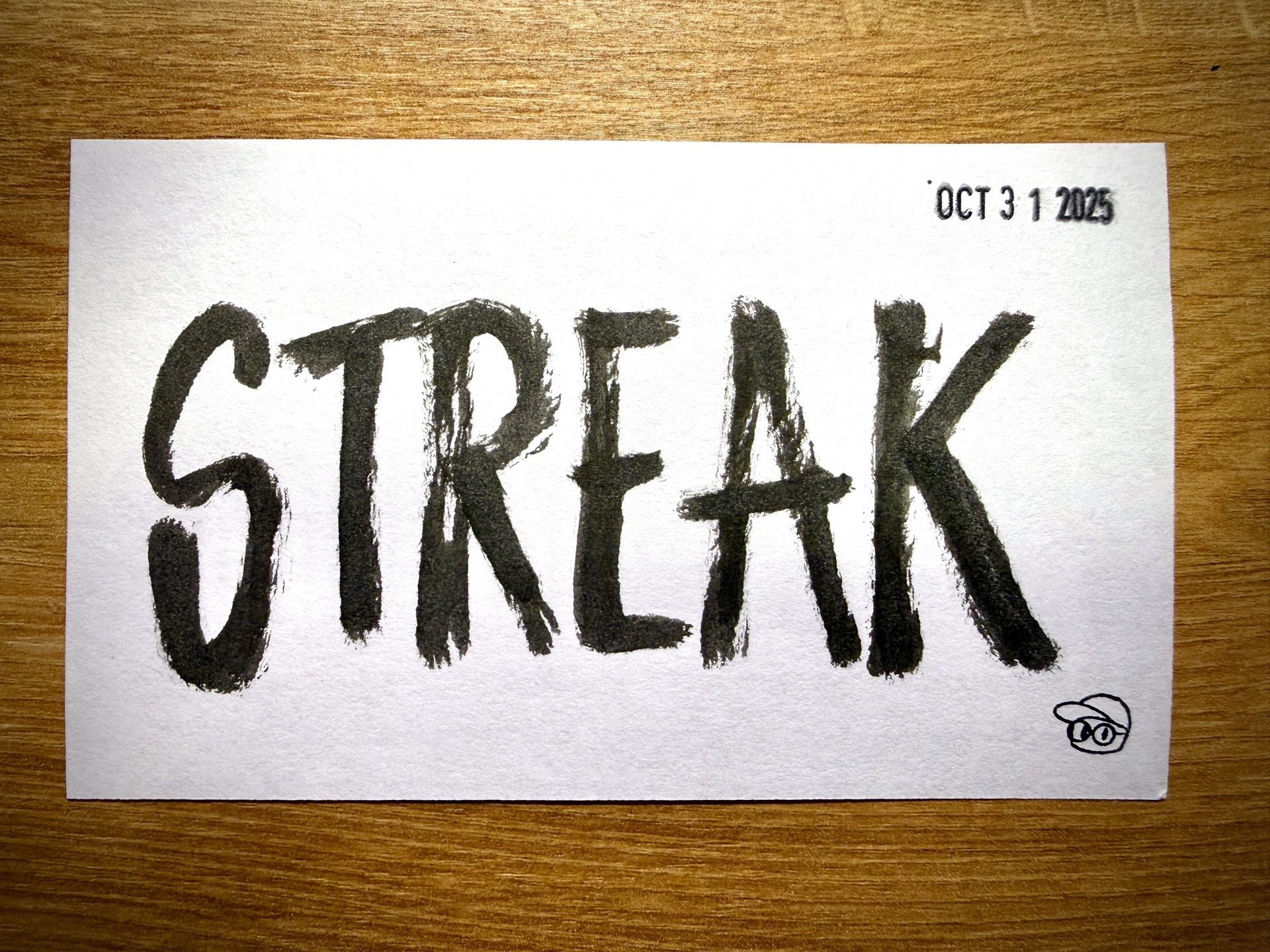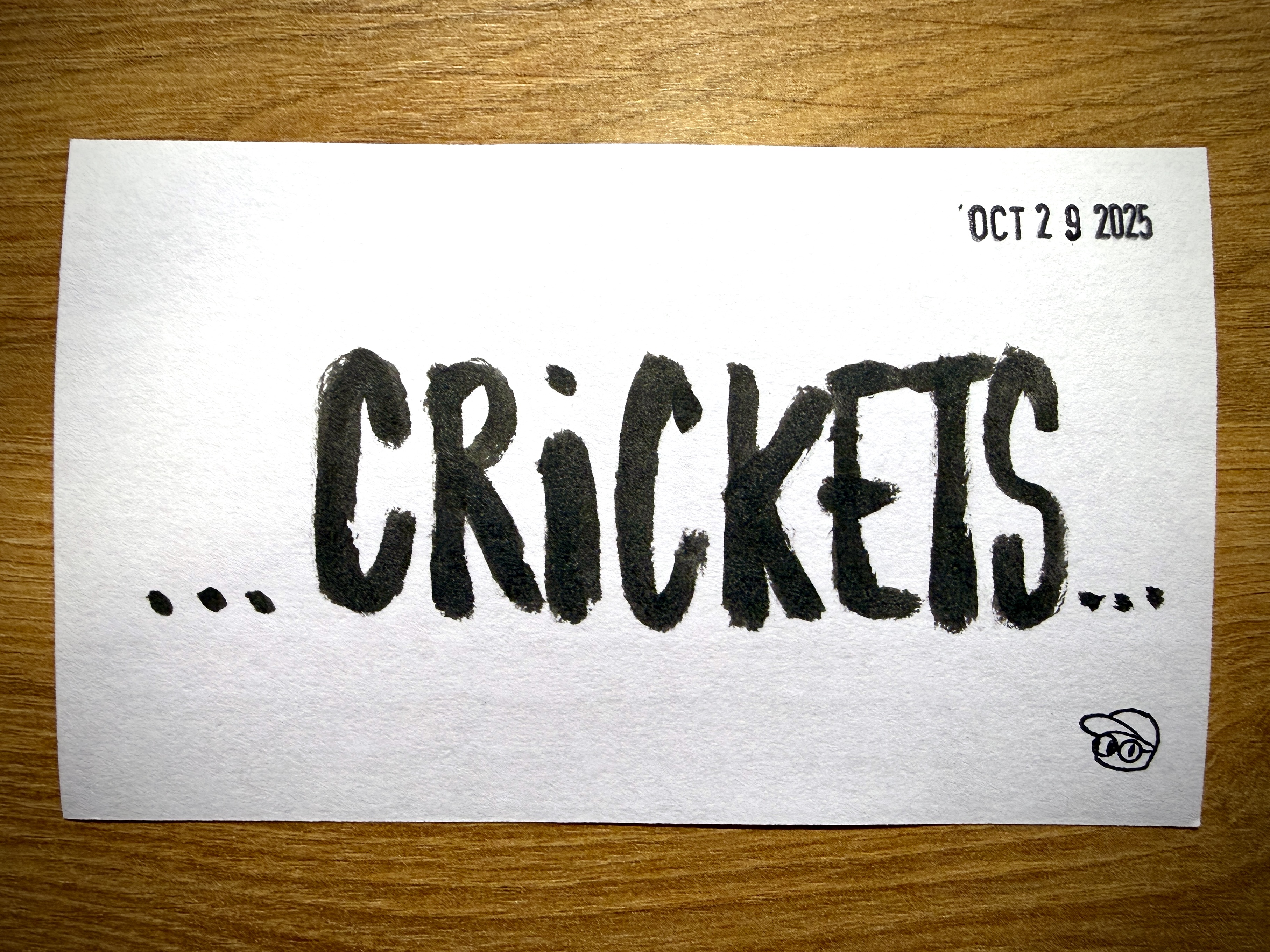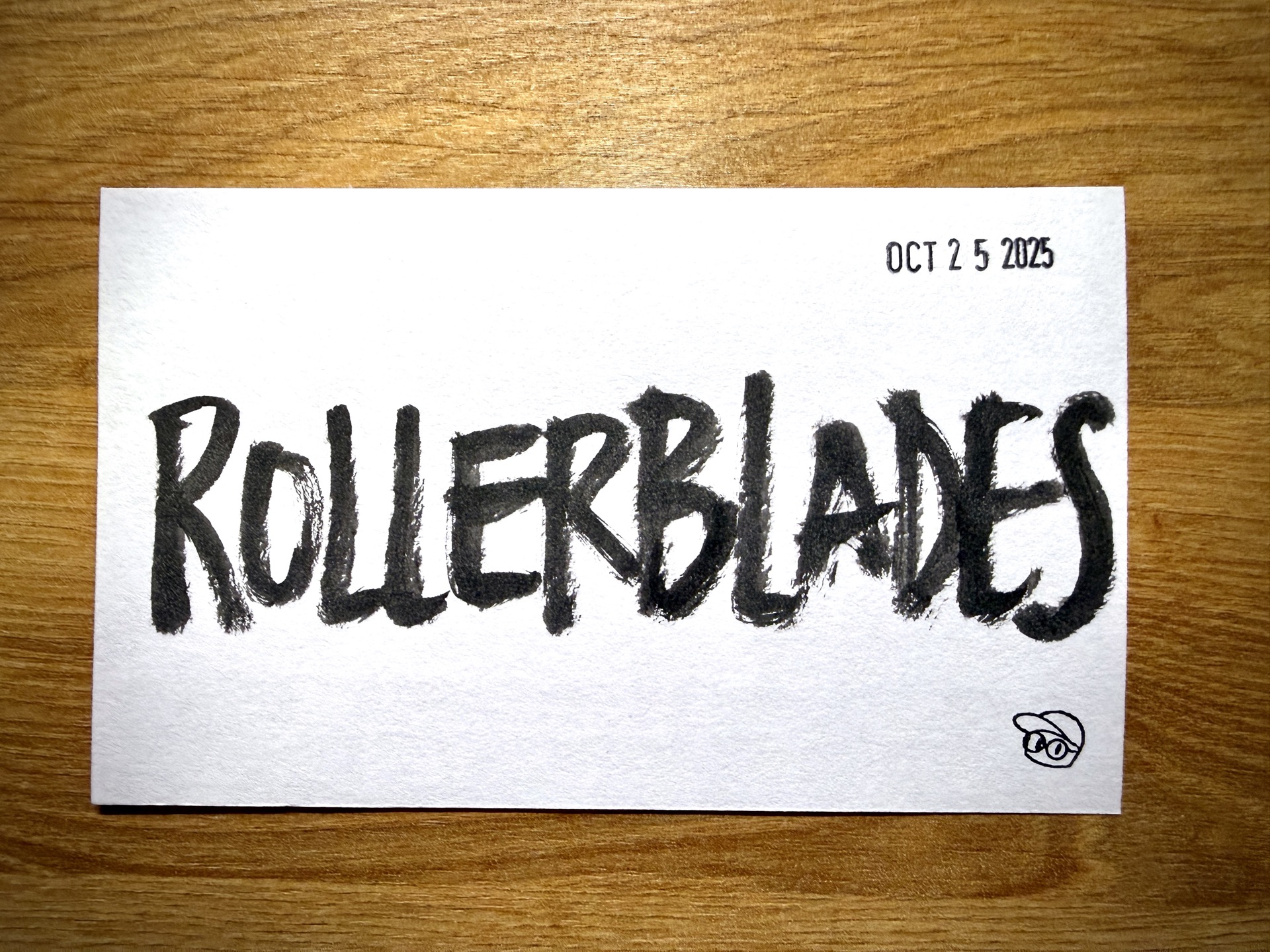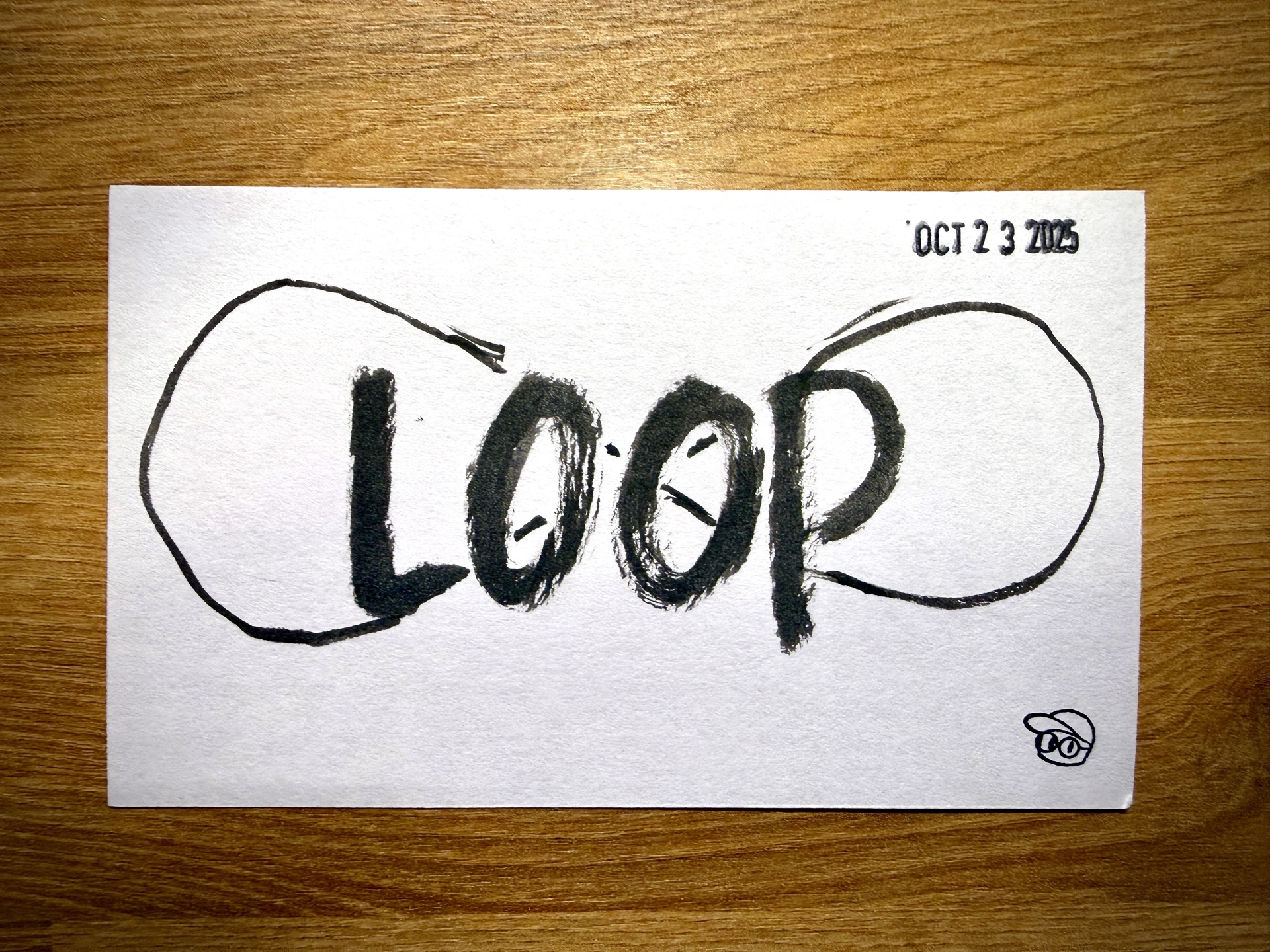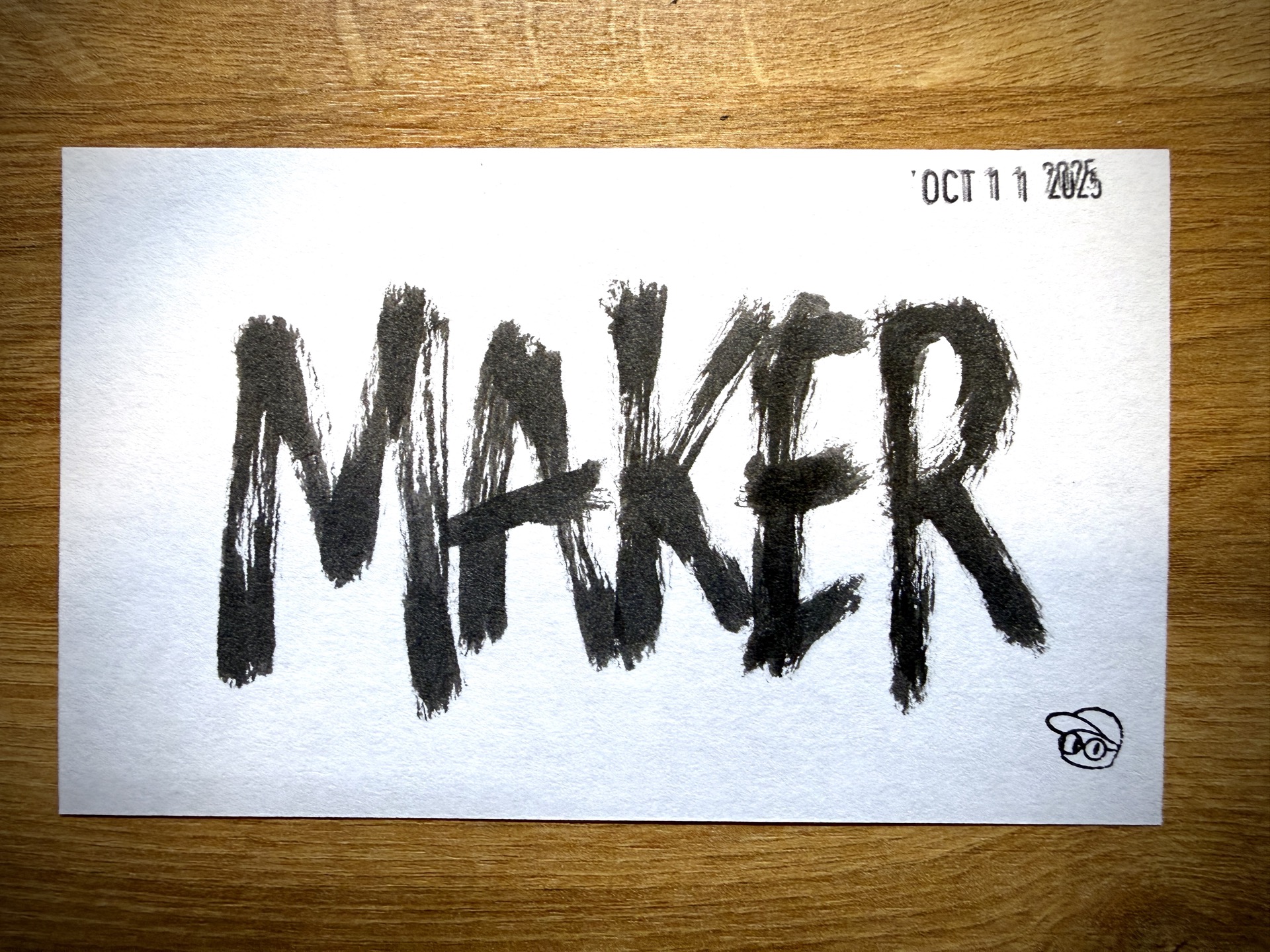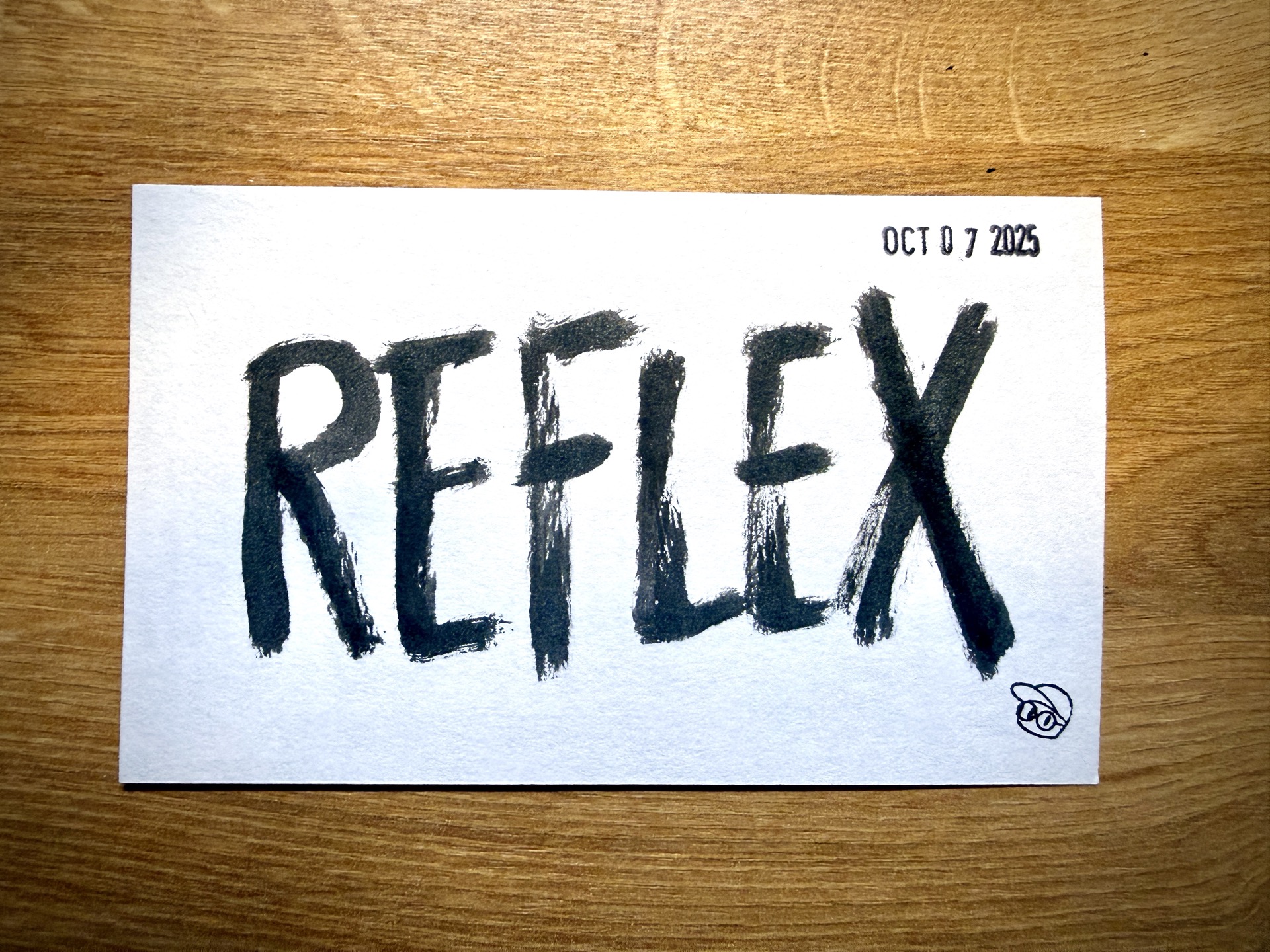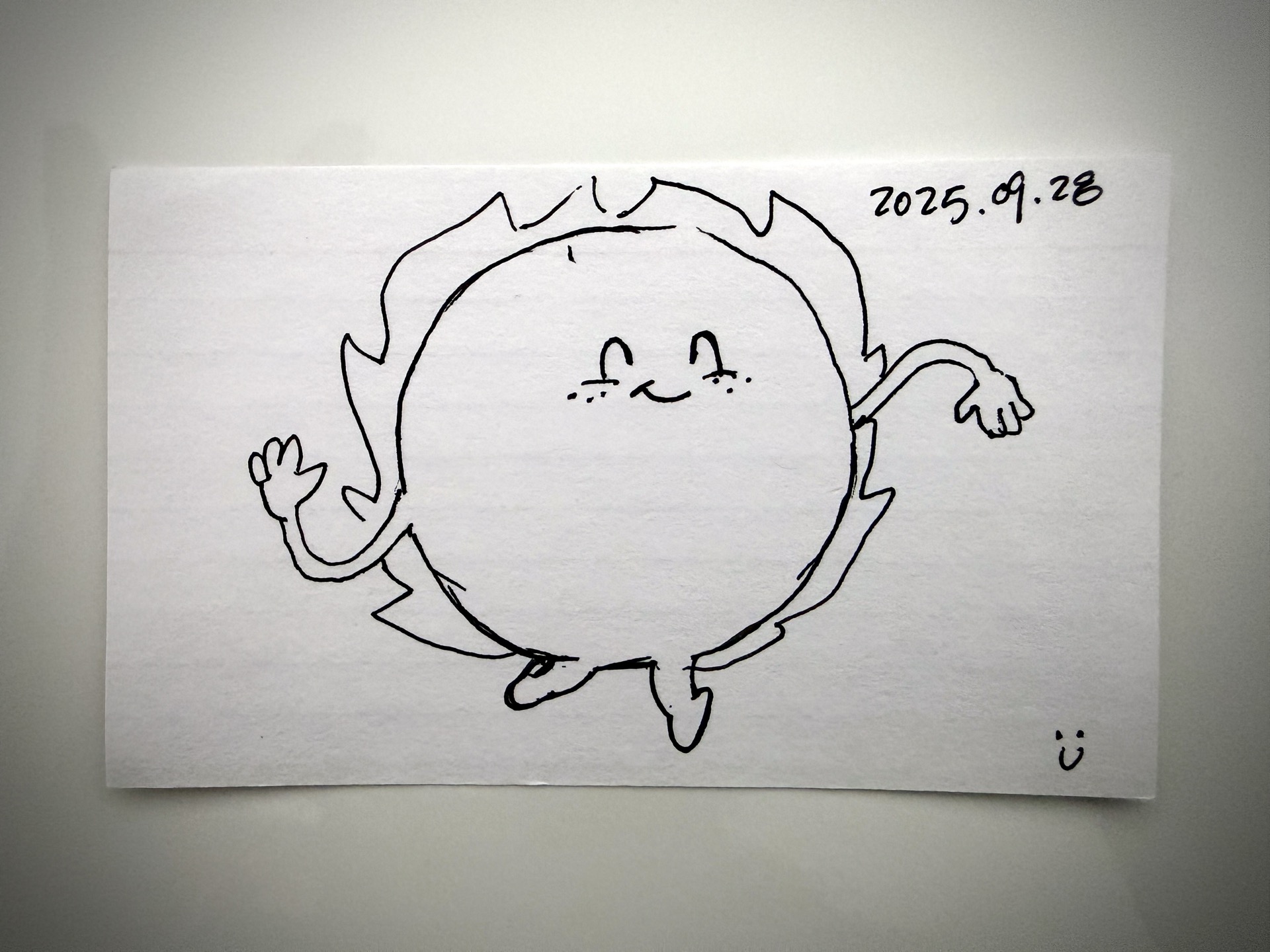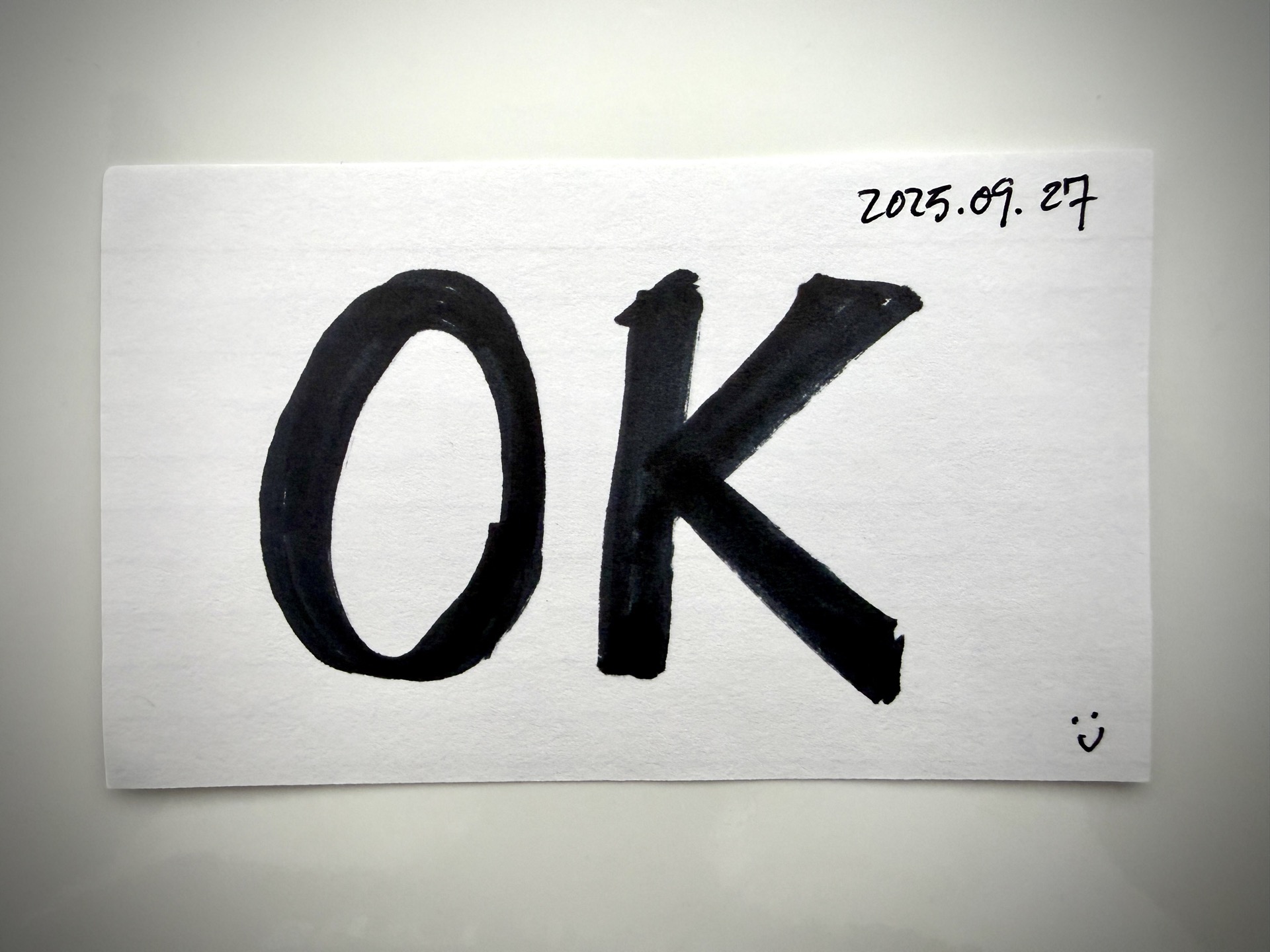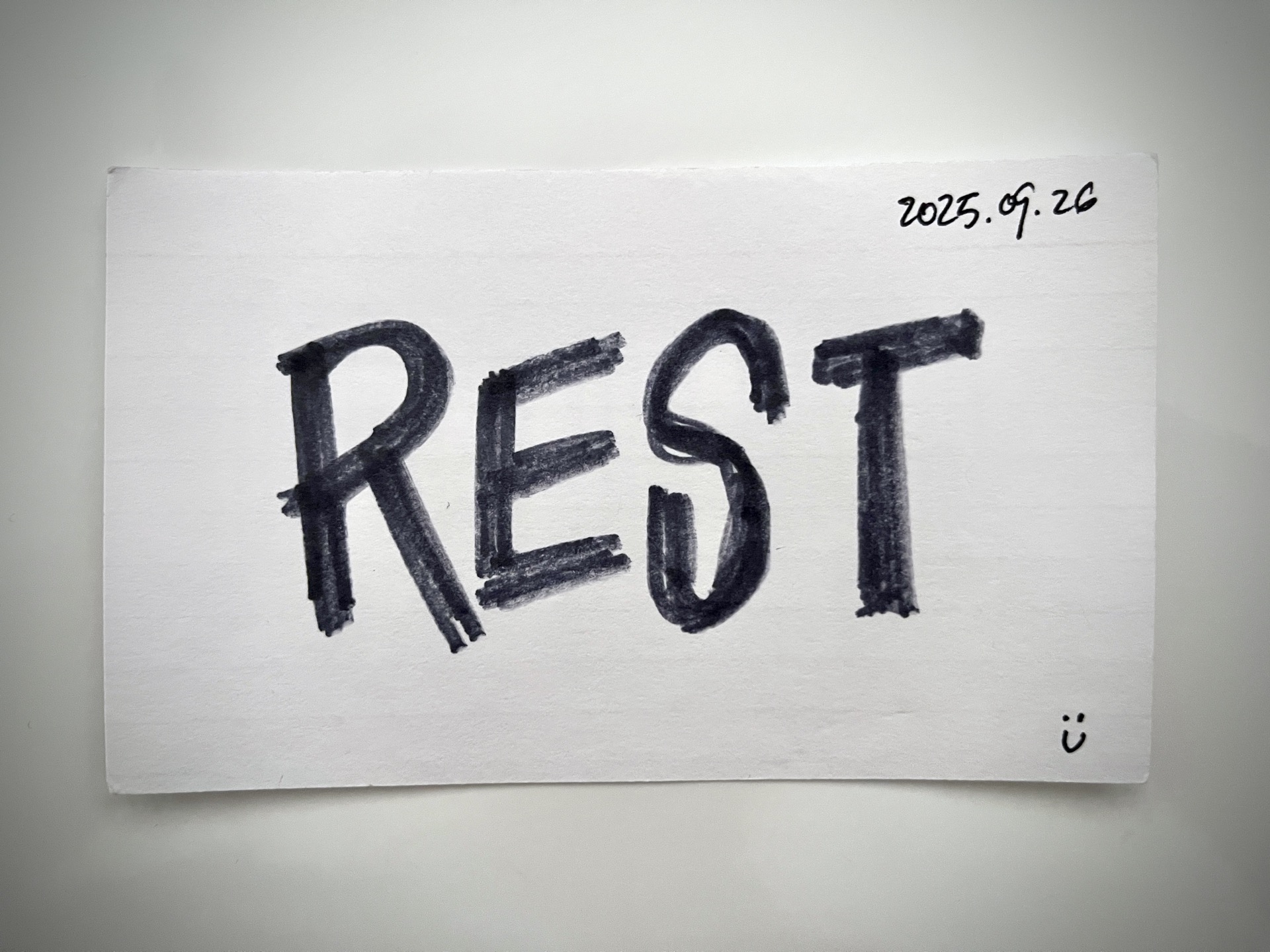Self-understanding
Streak
Started with one step. Ended with 203. Streaks don’t last forever—but the muscle does. Sometimes you stop running just to remember why you started.
Crickets
The room goes quiet. No applause. No reaction. Just crickets. That doesn’t mean it didn’t matter. Some of your best work will land without a sound.
AoE
Every action has a radius. Some ripple quietly. Others detonate. Our decisions shape more than we expect—and we feel it most when the blast hits.
When
Behind every turning point is a moment that doesn’t always get noticed—when we stop waiting, stop circling, and quietly decide: this is it.
Rollerblades
It’s not the falls we remember. It’s the things we never gave a real chance.
Loop
Turns out muscle memory applies to writing, too. This post showed up like, “Hey, remember me?” I didn’t. But here we are.
Gravity
It’s not what the thing does. It’s what it means. Value isn’t measured in specs — it’s measured in orbit.
Manualness
Automation makes things faster. But the manual moments — the ones that make you stop and choose — are what keep you present, aware, and in control.
Maker
Momentum doesn’t come from planning. It comes from motion. Ten minutes. One scrap. A tiny step toward proof that it’s possible.
Little Things
All the little things. The details that quietly shape your day. That shape you, too.
Reflex
Every reflex is a clue. Feedback. Little signals pointing to the places we’ve learned to tolerate friction instead of fixing it.
Punch
Any skill feels clumsy. Then scripted. But eventually — automatic. That’s when the punch is just a punch again.
Go With The Flow Sunday
Halfway through PTO and thriving in full potato mode. Zero plans, maximum vibes.
OK
All the planning, all the process, all the polish — it circles back to the same thing: Are we going to be OK?
Rest
Rest. The quiet prep before the next push.
